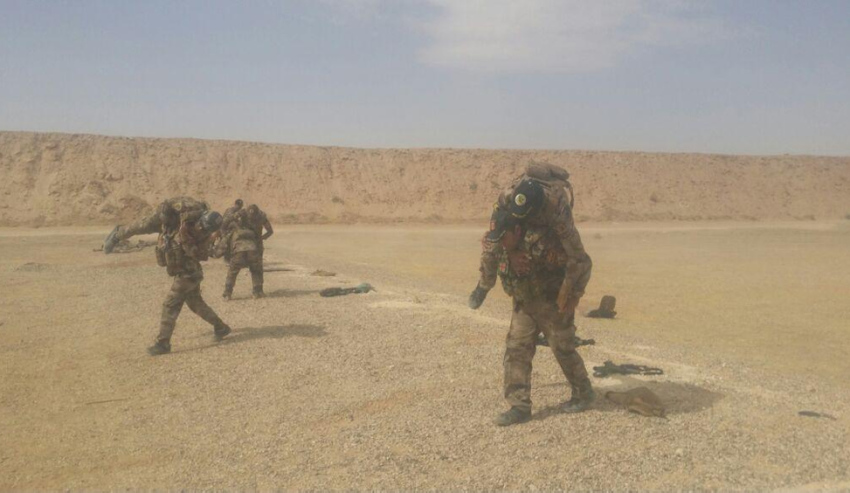As al-Qaeda (AQ) and Daesh look to further establish their presences in the Indo-Pacific region, a report from think tank Australian Strategic Policy Institute (ASPI) has said counterterrorism efforts will face four major challenges.
In his latest report, director of the National Security Program and head of the Counter-terrorism Policy Centre at ASPI Isaac Kfir has warned 'glocalism' is coming of age and the Indo-Pacific will be an important sphere for the evolving campaigns of al-Qaeda and Daesh.
"Salafi-jihadi ‘glocalism’ refers to the meshing of local issues with the transnational goals of al‑Qaeda – restoring Islam and the umma to their glory days – and advancing the idea of shared grievances through a program of action (terrorism)," Kfir said.
The head of the ASPI Counter-terrorism Policy Centre said while foreign fighters file into the region, there are other factors creating conditions for al-Qaeda and Daesh to exploit.
"These conditions range from oppressive policies such as those introduced by the Chinese government in Xinjiang Province, where there’s a preference for a ‘strike first, strike hard’ approach, to political shenanigans undertaken by the ruling party in Bangladesh such as placing thousands of its political opponents in prison, to disillusionment with globalisation. Al‑Qaeda and Daesh exploit these conditions," he said.
The report, which focuses on incidents in Marawi, Bangladesh, the Xinjiang Province and Rohingya, warns that Australia and the Indo-Pacific will face four key challenge to its counterterrorism efforts; the rise of war and terrorism, returning foreign terrorist fighters, the internet and online radicalisation, and the development and promotion of counter-narratives.
Kfir argues that recent conflicts have shown young men are drawn into joining 'causes' and the risk of a new war could produce more jihadist movements.
"Conflicts in Afghanistan, Algeria, Chechnya, Iraq, Lebanon, Somalia, Syria and Yemen have all ‘pulled’ young people (primarily men) to become part of a greater cause. Clearly, not all civil wars in the Muslim world produce large jihadist movements, but the risk of a new war doing so is considerable," the report said.
"Both AQ and Daesh have focused on the suffering of the Rohingya and the Uygurs in their global radicalisation campaigns. The policies of the Myanmar government and of the Chinese are used as pull factors by highlighting how Muslims are being targeted and the West is doing little to stop the suffering. The mantra of the Salafi-jihadis is that it’s time to take action to end the suffering of Muslims and restore their honour and pride."
The risk of foreign terrorist fighters (FTFs) comes from those referred to as 'devoted actors' that are committed to values they will not deviate from, making them a threat to their country of origin, Kfir said.
"FTFs pose ongoing risks to states because they might mount operations in their countries of origin or residence, act as trainers, planners and inciters, or try to establish a branch in their home country," the report said.
"It’s unclear how many individuals from the Indo-Pacific have travelled to the caliphate, as not all the information is openly available and there’s also some confusion about how one determines whether a person is an FTF (the term was defined only in 2014, in UN Security Council Resolution 217887).
"Moreover, the Western world tends to focus less on foreign fighters who aren’t Western, leading to a major gap in our knowledge, especially as it’s become clear that many FTFs are seeking sanctuary in the non-Western world."
Kfir notes that while Western countries have designed programs to address the FTF problem, many non-Western countries have not.
"Many non-Western governments don’t seem to have such programs, possibly because they lack resources or the knowledge. Indonesia is a case in point. The country has a large prison population (around 254,000 inmates held in 477 prisons), which means that its prisons hold twice the number of inmates that they should (there is on average one guard for every 55 prisoners)," Kfir argues.
"Additionally, the concept of radicalisation is understood to mean ‘everything that happens before the bomb goes off’, instead of seeing radicalisation as a nuanced process in which there have been examples of successful intervention."
Despite the obvious benefits, the increase of internet access in the Indo-Pacific also presents a multitude of problems with Daesh and other terrorist organisations able to engage in 'remote radicalistion' whereby an individual is radicalised by what they read and see online.
"Clearly, terrorists have become more sophisticated in their use of online platforms because of encryption and their recognition that states are paying more attention to their online presence (in 2007, AQ released an encryption tool called ‘Mujahedeen Secrets’ and a year later it provided an updated version, which Anwar al-Awlaki used to communicate with some people)," Kfir said.
"Moreover, mobile phones are increasingly difficult to break into (the FBI allegedly paid $1 million to break into the iPhone of Syed Rizwan Farook, the San Bernardino terrorist); or individuals simply use ‘burner’ phones (before launching their attack on the Bataclan music hall in November 2015, the three gunmen sent messages to one another through Telegram and sent unencrypted messages to co-conspirators on burner phones)."
Kfir also argues a key issue in the campaign against terrorism is the need to engage in a counter-narrative discourse to challenge messages from AQ and Daesh. What would amount to a 'true' representation of the narrative and who is best placed to present it remain key questions.
"The discourse on counter-narratives is challenging because the continuous Western demand for a Muslim-based counter-narrative strategy has come to be seen as a demand that Islamic belief systems and adherents must co-exist with ‘Western’ values and ethics. Consequently, a fissure is emerging between Muslim and non-Muslim communities," he said.









